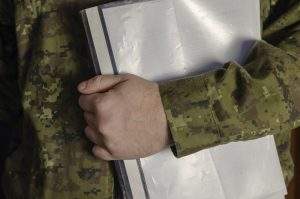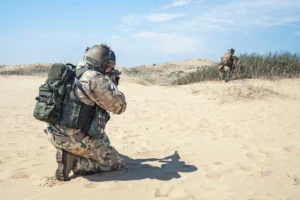YOUNTVILLE As a state senator visited the Veterans Home of California on a statewide tour of senior care centers, leaders of the home shared their thoughts on improving care for future generations of veterans.
On Monday afternoon, Californias oldest and largest residence for retired service members was the third of four stops on the bus tour by Sen. Carol Liu, D-La Caada Flintridge, who chairs the Senate Select Committee on Aging and Long-Term Care. Liu presented the series of visits as a way to gather ideas and examples for reforming elder-care services in the state.
What is California doing to address the needs of its veterans? We should not be holding out as long as there are veterans in need, Liu said after the meeting at Grant Hall with Veteran Home administrator Donald Veverka and officials with the home and state Department of Veterans Affairs. You cant ignore the needs of people whove served our country and come back damaged.
Comparing the Yountville Veterans Home with the seven others in California illustrates the vast changes in senior care over the decades, according to home staff. While the 130-year-old homes original barracks-like dormitories long ago gave way mainly to double-occupancy rooms, other California veterans homes gradually have moved toward single rooms and bathrooms for all residents.
As the number of dementia patients grows along with the size of the elderly population, the Yountville homes memory-care unit will need staff with psychiatric training to care for patients too violent or unstable to treat by conventional means, said Alan Jessen, the homes clinical administrator.
Two residents of the Yountville home praised the breadth of its services, but pointed to the need for other kinds of aid beyond the existing medical, rehabilitation and nursing services.
If you have a bloody nose or a broken leg, they take care of you here, Ed Olson of the residents Allied Council told Liu. But if you need someone to talk to well, youve got social workers and psychologists and psychiatrists, but theres nobody here to handle talk therapy.
What we need is more intergenerational contact involving Veterans Home residents, local youth and even Pathway patients, said Ed Warren, another Allied Council member. We do many wonderful things and we can do so much more.
The need for more extensive mental health treatment at Yountville and other veterans homes will only become more pressing as the ranks of retired service members from the Iraq and Afghanistan wars grow, CalVet spokesman Paul Sullivan told Liu. Of the 1.1 million veterans of those wars whom the federal Department of Veterans Affairs has treated, 56 percent have been diagnosed with mental health conditions, and a third of those have been diagnosed with post-traumatic stress disorder, he said.
Veverka and CalVet directors pointed to The Pathway Home, which provides residential care for Iraq and Afghanistan veterans suffering PTSD, as perhaps the greatest local success in advancing veterans welfare. Yet they added that Pathway an independent nonprofit hosted on the Veterans Home grounds also illustrates the difficulties of putting new ideas into action, as the privately funded home was forced to cut its enrollment in 2011, from more than 30 to fewer than 15.
Longer, more intense tours of dutyintensified by constant combat with insurgents who blend easily into civilian surroundings are exacting a steeper toll on todays service members, according to Veverka.
During World War II, the average total combat exposure was 45 days, he said during the discussion. For Iraq and Afghanistan, it was 1,000 days. Can you imagine facing all that for 1,000 days? Its no wonder these guys come back home not knowing how they fit in.
There is a profound need, especially with veterans of Vietnam and later wars, for (mental health) services, and we dont currently have the infrastructure to deal with them with any degree of excellence and I want to see that developed, Veverka said Tuesday. We need the budget and infrastructure to build that kind of program. That will be a focus here in Yountville.
Lius tour of senior care facilities, which ran from Sunday to Tuesday, also included stops at the Pasadena Senior Center, Burbank Senior Artists Colony and the Institute on Aging in San Francisco.





